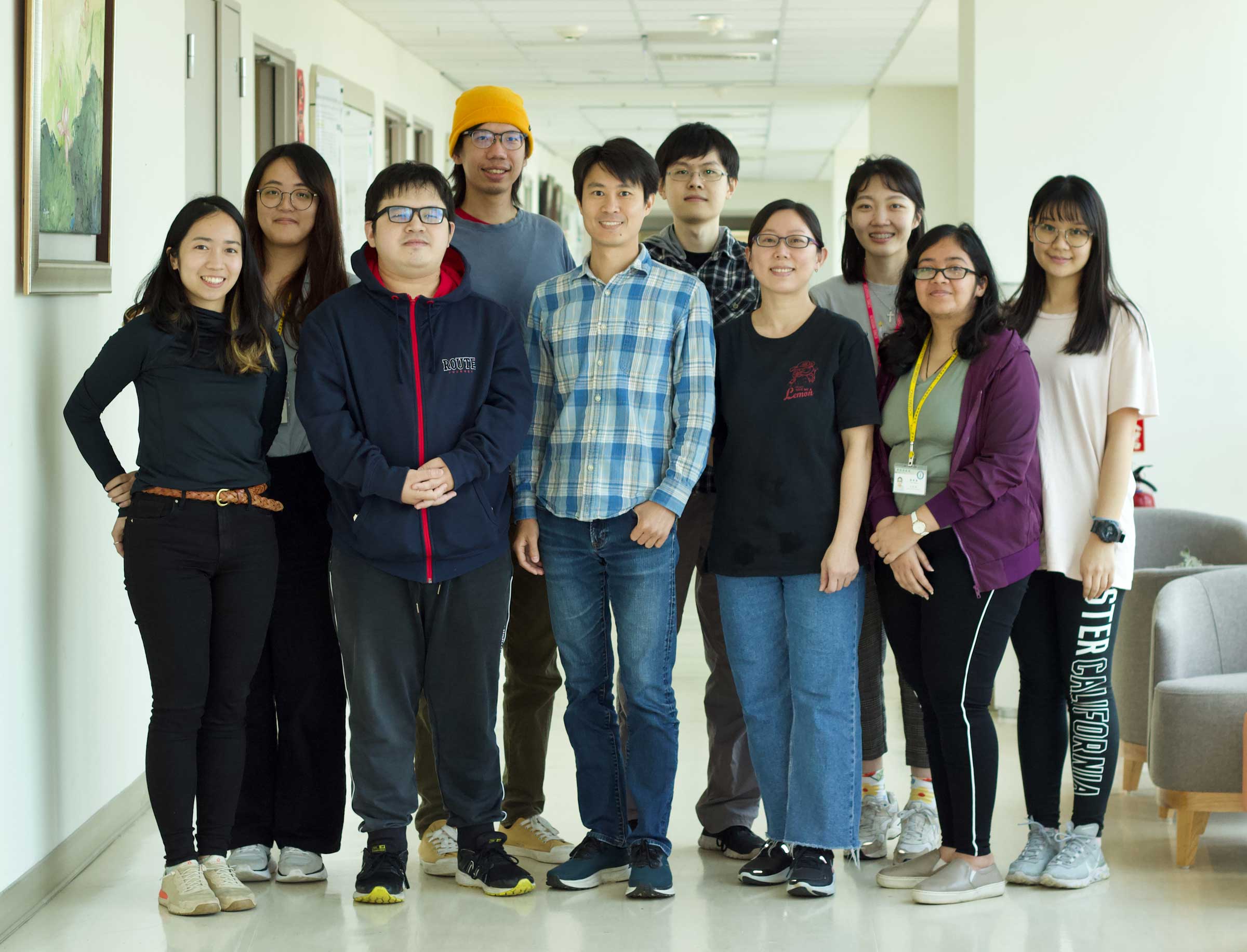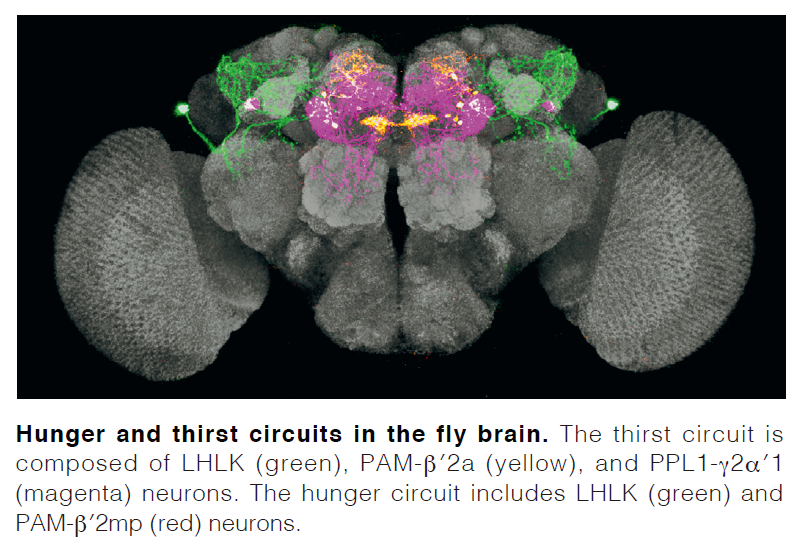Neural Mechanisms of Motivation and Memory
Motivation is an internal drive that directs behavior towards a desired future state. It affects how we make decisions and how we perceive the world. It also interacts with memory systems so that learning and memory recall are more efficient under a relevant motivational state. In human, defects in motivational systems have been linked to many mental disorders, such as obsession, depression, eating disorder, and addiction.
My lab investigates the neural basis of motivation and its interaction with memory by studying hungerand thirst-driven behavior in the fruit fly Drosophila. Hunger and thirst are primary motivations, and like us, flies seek food when hungry and drink water when thirsty. They can learn and remember environmental cues associated with food and water, and later use this information to make foraging decisions. Flies achieves these complex behaviors with a relatively small brain. Powerful genetic tools and the numeric simplicity of the brain allow us to manipulate neural circuits with fine temporal precision at single-cell resolution. This provides a unique opportunity to comprehensively study how a brain processes and integrates multiple pieces of information, such as motivational states and learned experience, to select an appropriate course of action.
We will use a combination of genetics, in vivo imaging, molecular biology, and quantitative behavior to establish causal likes between neural network computation and behavior. Starting by exploiting the neural basis of thirst and hunger, we hope to gain a deeper understanding of how the brain stores, uses, and integrates information received from the external world and information generated internally within the nervous system.
- PDF, 2012-2015, CNCB, Univ. Oxford, UK
- Ph.D., 2011, Dept. Neuroscience, UMASS Medical School, USA
- MS, 2004, Dept. Genetics, National Yang-Ming Univ., Taiwan
- BS, 2002, Dept. Life Sciences, National Yang-Ming Univ., Taiwan
- 2019, The Young Scholars' Creativity Award, The Foundation for the Advancement of Outstanding Scholarship
- 2020, Da-You Wu Memorial Award, National Science and Technology Council
- 2020, Hsu Yu-Ziang Award, Papers of Science and Technology
- 2020, EMBO Global Investigator Network
- 2021, Academia Sinica Early-Career Investigator Research Achievement Award
- 2023, Research Excellence Award, National Science and Technology Council
- 2023, Academia Sinica Presidential Scholars Program
- 2023, TienTe Lee Award-Young Scientists, TienTe Lee Biomedical Foundation
- Lin, S., Owald, D., Chandra, V., Talbot, C., Huetteroth, W., Waddell, S. (2014 Nov) Neural correlates of water reward in thirsty Drosophila. Nat. Neurosci. 17: 1536- 1542.
- Felsenberg, J., Barnstedt, O., Cognigni, P., Lin, S., Waddell, S. (2017 Apr) Re-evaluation of learned information in Drosophila. Nature 544(7649): 240-244.
- Tsao, C.H., Chen, C.C., Lin, C.H., Yang, H.Y., Lin, S. (2018 Mar) Drosophila mushroom bodies integrate hunger and satiety signals to control innate foodseeking behavior. eLife 7: e35264.
- Lin, S., Senapati, B., Tsao, C.H. (2019 Mar) Neural basis of hunger-driven behavior in Drosophila. Open Biology 9(3): 180259.
- Senapati, B., Tsao, C.H., Juan, Y.A., Chiu, T.H., Wu, C.L., Waddell, S., Lin, S. (2019 Dec) A neural mechanism for deprivation state-specific expression of relevant memories in Drosophila. Nature Neurosci. 22(12): 2029- 2039.
- Lin, C.H., Lin, S. (preprint) Assembly of the Drosophila mushroom body circuit and its regulation by Semaphorin 1a. bioRxiv. doi.org/10.1101/835595.


